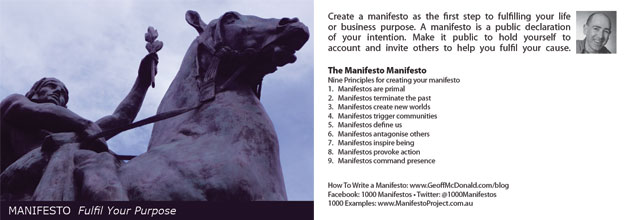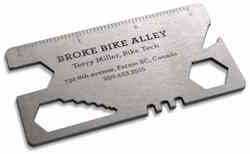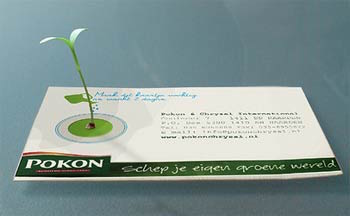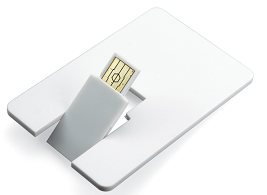
Extended Business Cards
Previously we wrote about the Pros and Cons of Business Cards. And, we finished with the important question:
How can you use your business cards to bring your big idea to life?
Today, I want to offer some solutions to this challenge.
Three Levels of Business Cards
To put this into context I think there are three basic levels to business card design:
- Contact Details – a card that provides your basic contact details and fails to impress at a branding level
- Branding – a card that provides your contact details AND adds to the presence of your brand
- Artifact – a card that provides your contact details and is useful in some way to presence your big idea. You know you’ve crossed the artifact line when the recipient wants to keep your card long after they have your contact details.
Here’s four ways you can turn your business card into an artifact and a keepsake…
1 Tips
The easiest way to add some added value via your business card is to offer some useful information. Given the size limit of a typical business card this is probably not going to be much more than a tip, a simple action or a statement of your philosophy.
TIP: What information could you add to provide extra value to your recipient?
[Tweet “4 Ways to turn your business card into something useful #businesscards”]
2 Postcard

Previously, I have used postcards and put a colourful and emotional image on one side and my manifesto on the reverse side. Alternatively, you might consider a short activity that the reader can undertake – for example a quiz or ‘how to’ do something. For instance if you sold ties for men you could share the instructions for creating a Windsor Knot.
The advantage and also the disadvantage of the postcard is the size. Given they are bigger than normal you won’t be carrying them in your pocket. And, the same applies to the person you’re giving them to.
The big reason for creating a postcard and doing it well is that you will stand out in a memorable way. And, ideally, the recipient will love it so much they will take it home and stick it on their fridge or their pin-board for months to come – that’s the ultimate goal!
TIP: Design your card with the intention of having someone post it on your fridge.
 3 Tool
3 Tool
When I say ‘tool’ I mean an instrument or device that makes it easier to perform a task. The key here is to flip your thinking. Instead of creating a flat card that does something, think of an easy to reproduce object that has your contact details on it. This could be as simple as a pen.
Here are some examples I’ve seen over the years:
- Car Tyres – add a measurement on your business card for the legal depth of tyre tread.
- Optometrist – add text at various small sizes that suggests ‘If you can’t read this easily you might want to come and see me’.
- Bicycles – Create a business card from metal shaped to work as a basic tool for fixing your bike. Whilst this won’t replace a proper tool kit it might just save the day when something goes wrong out on a ride.
- Cheese Shop – A business card that is also a small cheese grater.
- Content Creators – We designed this for a client recently and whilst the cards were a couple of dollars each the impact was impressive. The key is an off-the-shelf USB card – they are the same size as a credit card and about 3 times thicker. The supplier can print your contact details on one side and you can load a special e-book onto the card as a gift.
TIP: How does someone use your service everyday? Create a tool based on this. Think tool first, card second.
4 Book

TIP: Write a book. And, share it widely as a lead generation strategy.
COMMENT: Love to hear your thoughts about what ideas this post may be sparked.

 3 Tool
3 Tool

